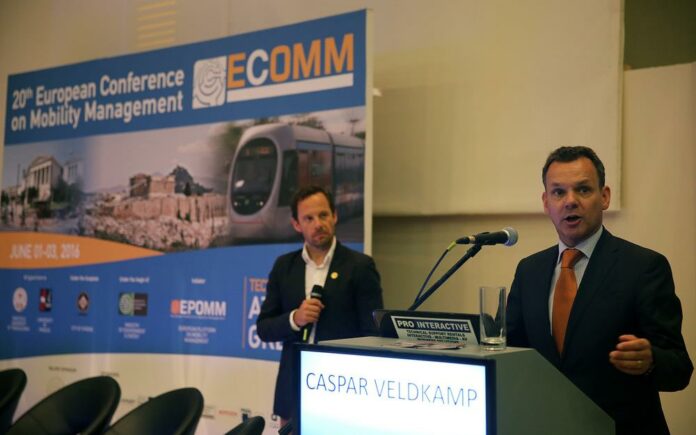The Netherlands’ ambassador to Greece on Friday issued a widely circulated written statement indirectly deflecting mostly local press speculation over this month’s election in the country, as well as its possible effects on the Greek bailout program, such as possible delays in talks, or even policy changes linked to Eurozone decisions concerning the crisis-battered country.
The statement by Amb. Caspar Veldkamp comes amid the ongoing negotiations in Athens between the leftist Greek government and its institutional creditors over the delayed second review of the third bailout.
Specifically, Veldkamp notes that:
“…We are in the run-up to general elections in the Netherlands on March 15. No less than 28 political parties are participating! Based on the outcome, a coalition will have to be built and a coalition agreement drafted. This usually takes a while, let’s say until summer. Before a new government is sworn in, our current government continues in a caretaker role. It will be able to take many decisions, such as implementing current policies and other decisions in the country’s interest.
Regarding Greece, steps forward have been taken in the Eurogroup under the leadership of Jeroen Dijsselbloem. Several principles have been outlined, the Institutions are sent back to Athens and uncertainties are reduced. Work remains to be done, e.g. on completion of the second review, on deciding primary surplus targets, and on specifying mid-term debt relief measures within the context of what the Eurogroup decided on this in May of last year.
The focus is on reforms. After the end of the current bail-out program, Greece should be healthy enough to start standing on its own feet. We should not forget that Greece has to adopt deep reforms anyway, to become more competitive in Europe and the world.
I see no reason for a left-led Greek government to shy away from improving competitiveness. According to various international rankings, the Dutch economy is among the most competitive in the world. At the same time, we are an egalitarian society and have an extensive welfare system. With smart policy decisions, entrepreneurial ambition and social inclusion can be combined.
The exact way in which a country wants want to balance the roles of market, state and society is a matter of democratic decision-making, also in the Netherlands. Apart from important matters such as immigration, identity and security, it is now up to the Dutch voters again how to define that balance in our country, for the next four years.”














